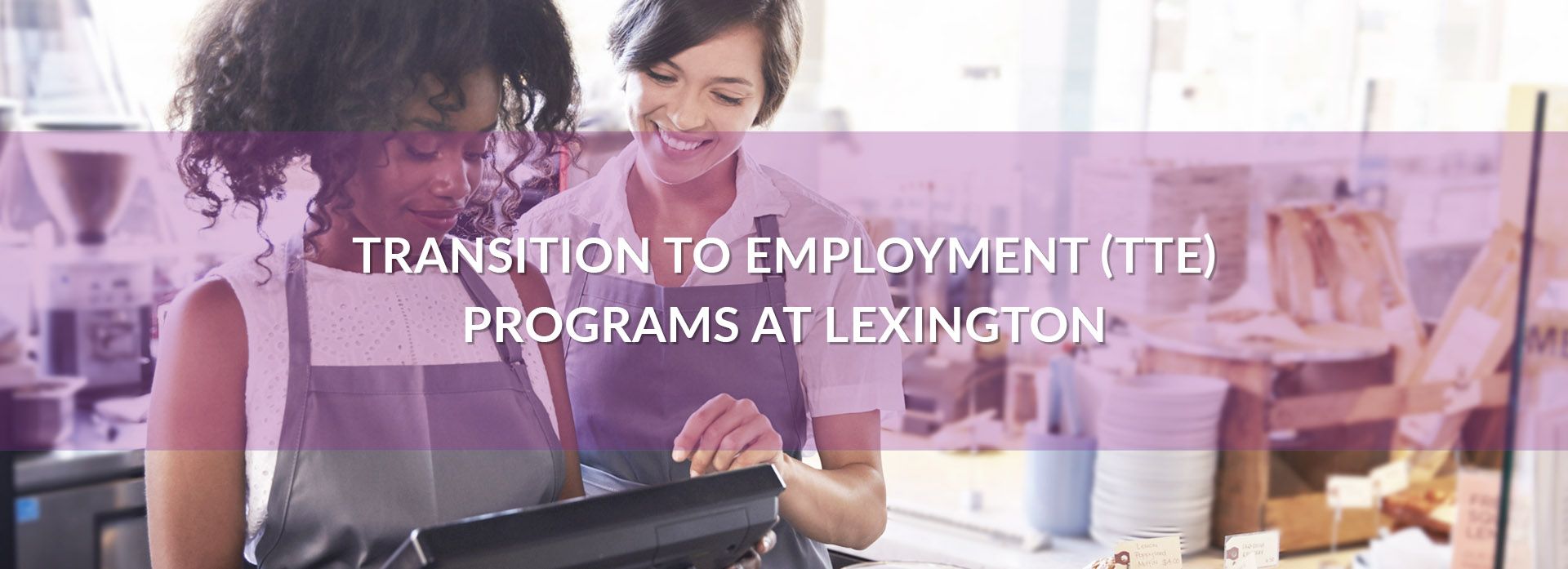Transition to Employment Programs at Lexington
Lexington Services is proud to announce that our Transition to Employment program is accepting members!
What is Transition to Employment?
Transition to Employment or TTE is a service that teaches individuals with disabilities that qualify for employment the “meaning, value and demands of work and in the development of positive attitudes toward work.” This program is related to several employment initiatives designed to provide training and support to promote integrated and competitive employment skills.
This TTE is integrated directly into a Person-Centered Service Plan with the planning team, similar to the IEP plan that many individuals use while in school. This service is designed to help individuals realize their employment and vocational goals while supporting their skill development and pursuing their passions.

The overall goal of the program is to help members transition to a more independent employme
nike rn cmtr cuscino riscaldante per cervicale amazon thermosflasche edelstahl oksfordke cipele سعر ماكينة غسيل السجاد المنزلية الكويت erima tennis shirt zapatos claqué hombre hoka sko hvite adidas predator 18.3 calzino si o no yahoo vans authentic canvas boardshop thermosflasche edelstahl 2 piece leather short set Canada custom baseball jersey maker pantalon aigle chasse yeezy boost 350v2
nt setting. This program can also guide individuals through unpaid shadowing experiences to engage with their interests and current skill set.
TTE services ensure that individuals have mentor guidance and supervision from Lexington experts to have the most favorable employment experience possible. Through a Transition to Employment program, an individual with autism can expand their employment horizons and work toward a career that incorporates their interests and unique skill sets.
Why Are Programs Like TTE important?
With an alarming number of adults with autism living unemployed, some studies suggest at least 27%, the need for services that help people with ASD find meaningful employment is striking.
There are several things that parents and guardians can do to help their loved ones prepare to join the workforce. Even with a perfect interview and a qualified skill set, some employment venues aren’t fit to deal with the unique needs of individuals with autism and other disabilities. This is where programs like Transition to Employment can significantly improve the outcomes for these individuals.
TTE provides a route for individuals to find honest work for actual pay, rather than sheltered workshops, which significantly bolsters an individual’s perception of themselves and their independence.
With some reports indicating that only 26% of youth with disabilities are employed, it’s essential to support our youth through these programs “So They Can” thrive as they transition to adulthood. With proper guidance, there are many employment paths that young people can excel at, and programs like Transition to Employment at Lexington will help them on that path to success
TTE at Lexington
“We primarily prepare our members to join the workforce,” explained Frances Oder, the TTE Director at Lexington. “We start by finding out their learning styles, likes, dislikes, and interests and build on what each individual needs to acquire their first job and enjoy it.”
TTE also teaches the basics that every employer wants their employees to know, such as soft skills, following the rules, dressing for success, and getting along with supervisors and peers. Members are taught essential independent skills such as knowing how to read a pay stub, how to get to work, and budgeting, among other things.
Our members all have individual skills they need to build on, and right now, our focus is on learning the value of money. We have some members that know of it but don’t understand the worth of a dollar or understand change (coins). Other members do, and they are encouraged to help with teaching those who don’t, so in essence, just about everyone here has the opportunity to teach one another.
“It is a program and job that I love,” said Oder. “Every member brings a unique talent to our team. We all learn and grow together as we prepare our unique individuals to enter the workforce and share their talents with the world.”
The TTE program at Lexington is aimed at young adults who are preparing for employment and are exploring their career paths. Members practice interviewing, learn how to find and apply for jobs and sometimes get the opportunity to practice the jobs they want in a Lexington environment.
For those seeking to join the Transition to Employment program at Lexington, or if you would like more information, contact us at TTE@lexingtonservices.com.








